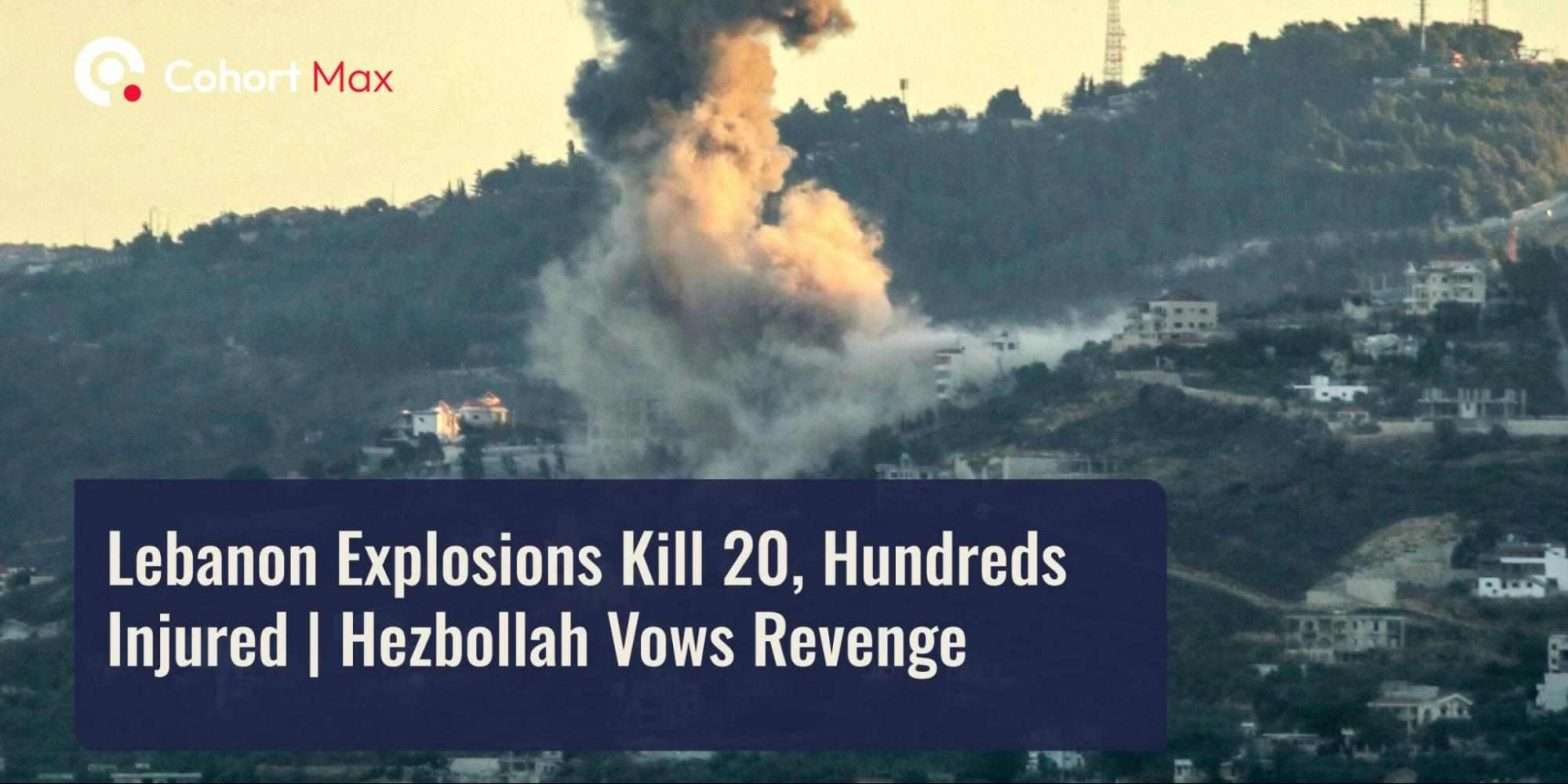Lebanon Explosions Kill 20, Hundreds Injured | Hezbollah Vows Revenge
At least 20 people have been killed and 450 injured after a series of explosions rocked Lebanon on Wednesday. The blasts, reportedly caused by remotely detonated walkie-talkies used by Hezbollah militants, have left the nation in shock. This tragic incident follows another round of explosions on Tuesday, where pagers used by the group detonated, killing 12 people, including three Hezbollah members and a child.
Hezbollah Points to Israel
Hezbollah, the Iran-backed militant group, has blamed Israel for the attacks. Though Israel has not made any official comments, several security experts in the Middle East and the United States have suggested the involvement of Mossad, Israel’s intelligence agency. According to these experts, explosives were planted inside the pagers months ago.
Retaliation Escalates Tensions
In response to the explosions, Hezbollah launched rocket strikes targeting Israeli artillery positions. This retaliation marks the first strike against its long-standing adversary, Israel, and has raised concerns about a potential wider conflict in the region.
Explosions Spread Across Beirut
The latest round of explosions occurred in Beirut and other parts of Lebanon, with solar energy systems in homes also reportedly exploding. In one instance, a young girl was injured due to one of these blasts. Medical teams, including those from the U.S.-based charity MedGlobal, have been overwhelmed with cases, performing hundreds of surgeries for injuries related to the detonations.
Mossad’s Alleged Role
According to sources, the pagers and walkie-talkies used in the explosions were acquired by Hezbollah months ago, and explosives were allegedly planted by Mossad. The sophistication of the operation has led to speculation that this is part of a broader strategy by Israel to weaken Hezbollah without engaging in a full-scale war.
International Response and Concerns
United Nations Secretary-General Antonio Guterres expressed deep concern, urging restraint from all parties to avoid further escalation. U.S. Secretary of State Antony Blinken echoed this sentiment during a press conference in Cairo, where he stressed the need for all sides to avoid actions that could worsen the conflict. Egypt’s Foreign Minister Badr Abdelatty warned that the region stands on the brink of a comprehensive war.
A Worsening Crisis
With tensions already high due to the ongoing Israel-Hamas conflict in Gaza, now in its 12th month, the latest developments in Lebanon have added another layer of complexity to the fragile regional situation. Israeli sources have reported moving additional troops to the Lebanon border as a precautionary measure, further heightening fears of a wider war.
Looking Ahead
As the world watches, the situation remains unpredictable. Former intelligence officials believe that Israel’s actions may be part of an effort to deter further rocket attacks from Hezbollah while also weakening the group’s influence within Lebanon. However, with emotions running high and retaliatory strikes already in motion, the possibility of escalation looms large.
The coming days will be critical in determining whether the region can avoid a full-scale conflict or if this is the beginning of a much broader war.
More Articles:
Hamas Leader Ismail Haniyeh Assassinated in Tehran Amid Rising Tensions
Expand the EU AI Act: A Crucial Step to Protect Palestinian Rights Amid Gaza Conflict







